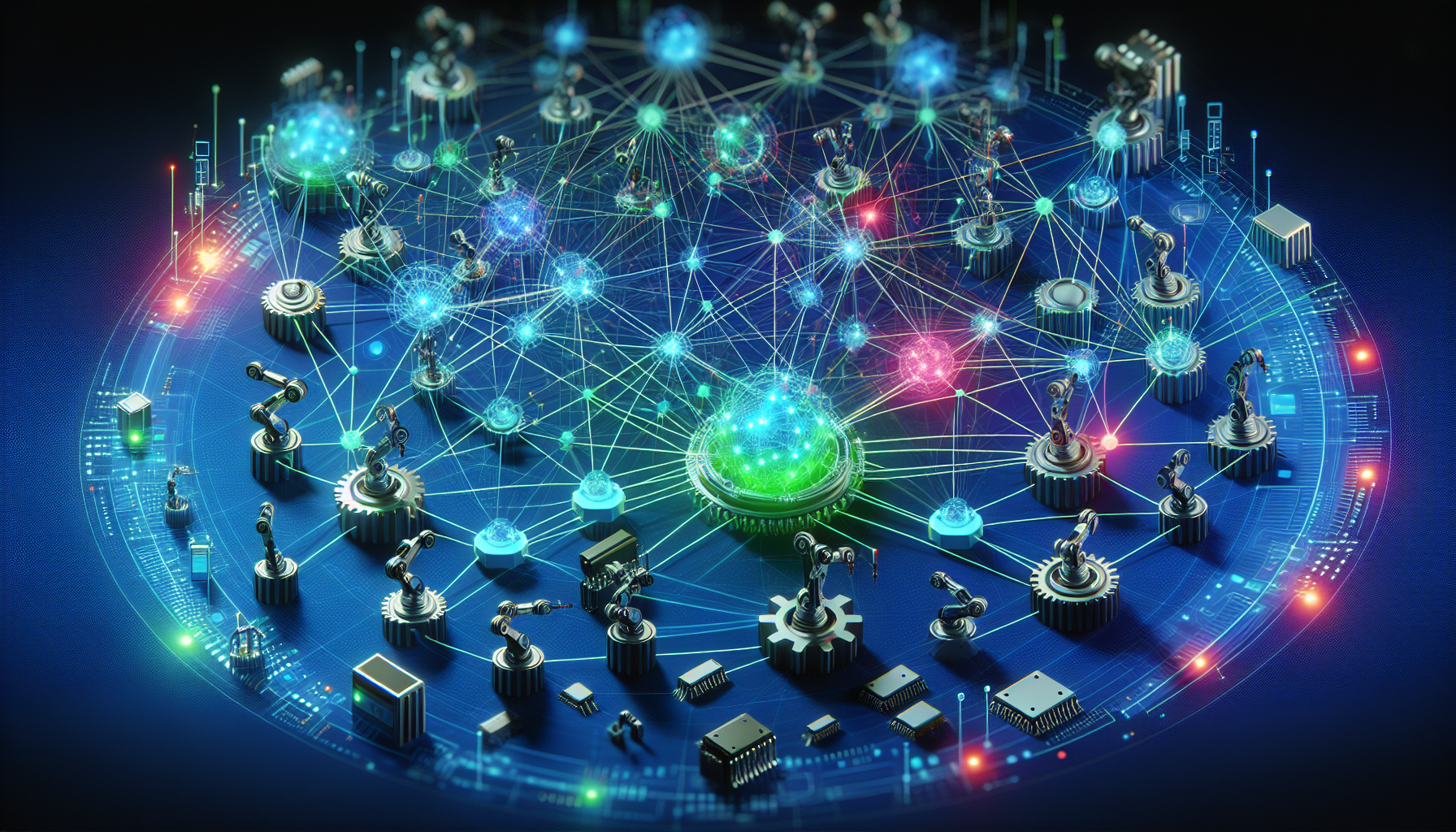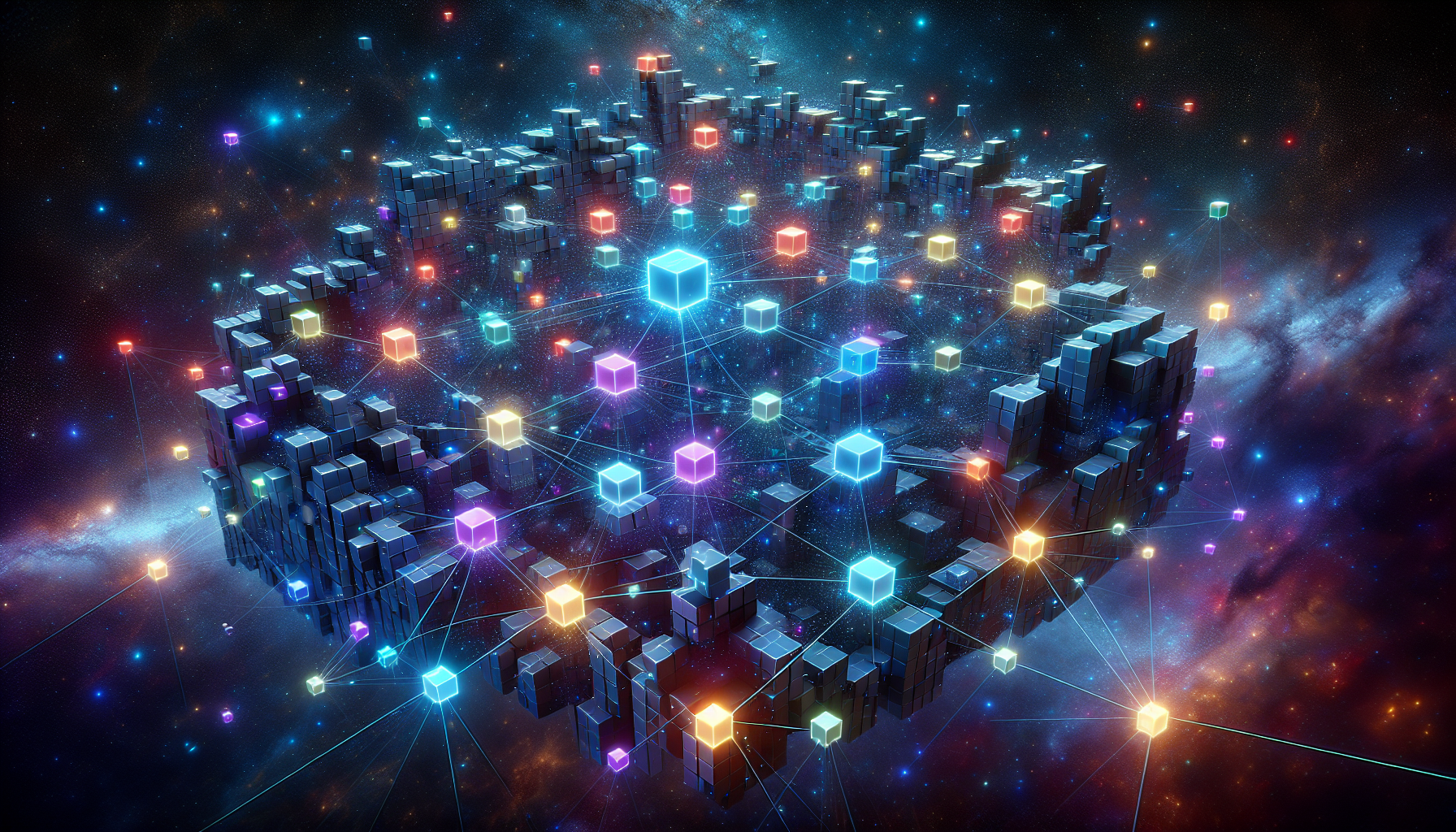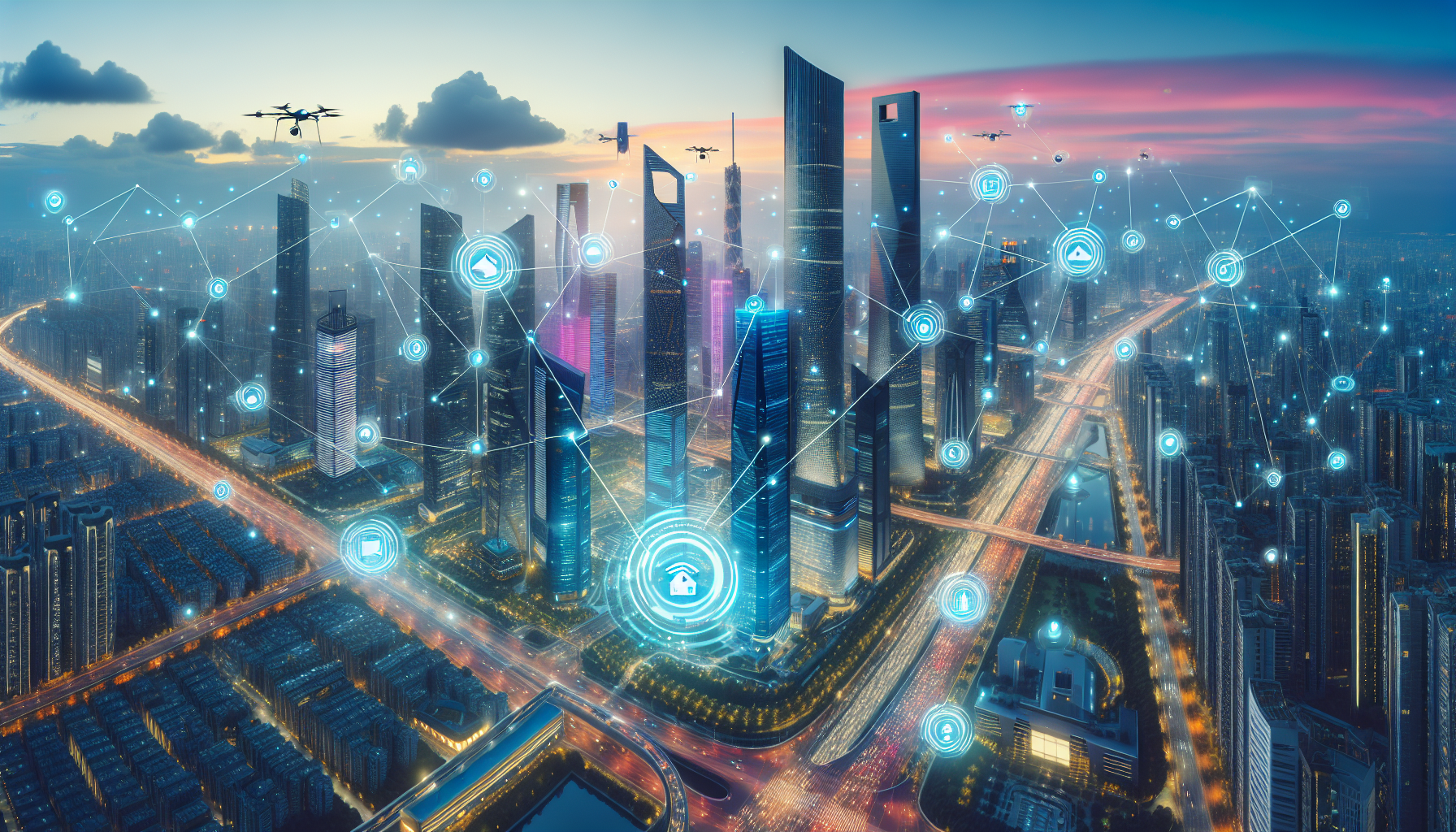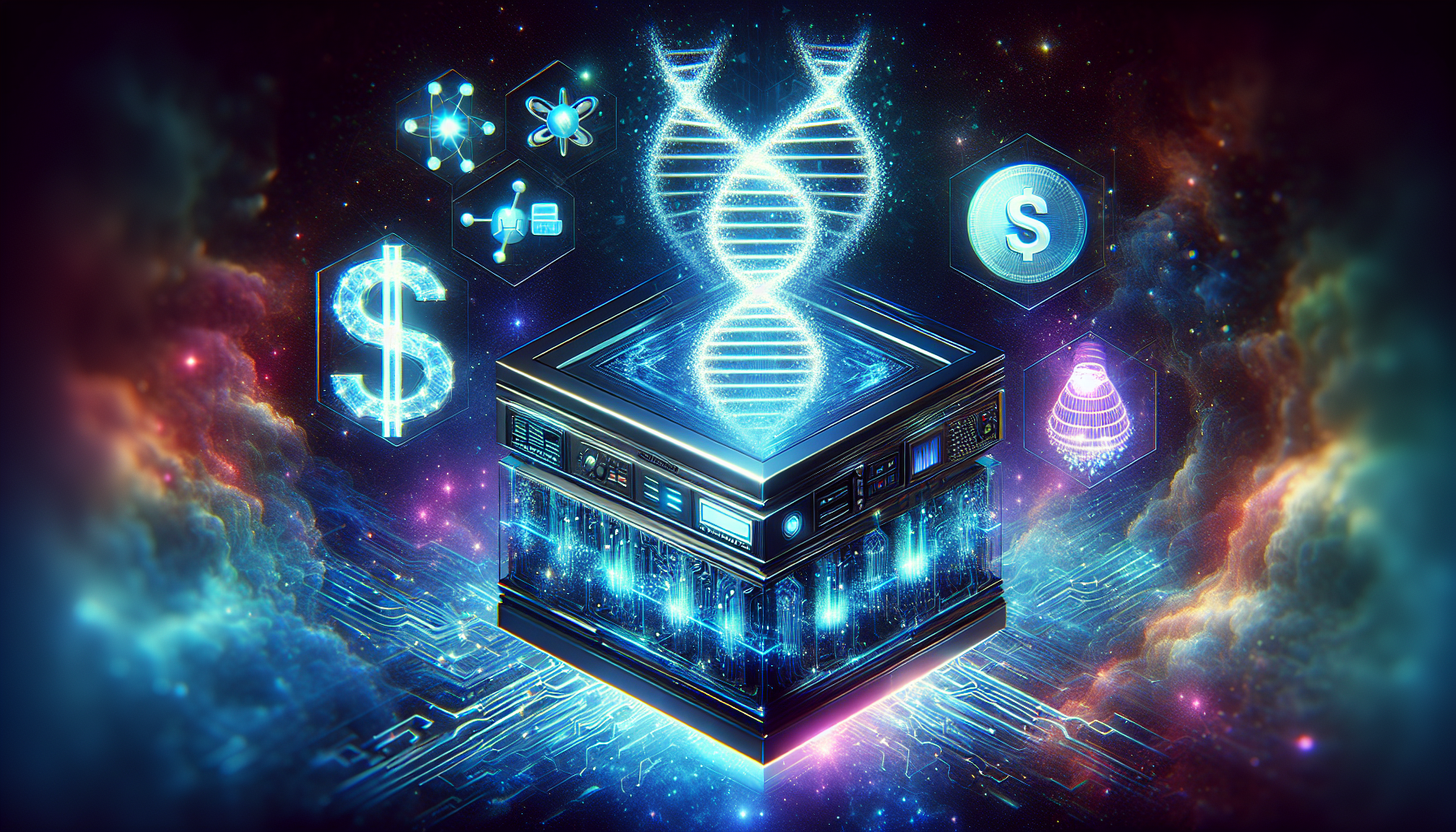Top Future Tech Trends: Navigating Tomorrow’s Innovations
The future of technology is not just a figment of science fiction; it’s a reality that’s unfolding right before our eyes. From the Metaverse and intelligent automation to pioneering blockchain technologies and the quantum leap in computing, the digital landscape is undergoing a seismic shift. As we stand on the cusp of this digital revolution, understanding these emerging future tech trends becomes paramount. It’s no longer a matter of if, but how these technologies will permeate our daily lives, revolutionize industries, and redefine the way we interact with the world.
Key Takeaways
- The Metaverse is revolutionizing various sectors such as retail and healthcare.
- AI, Blockchain, 5G and IoT are enabling unprecedented digital services across industries.
- Bioengineering & gene editing have the potential to revolutionize medicine & agriculture, but ethical considerations must be taken into account.
The Metaverse Evolution
Imagine stepping into a parallel digital universe where the boundaries between reality and virtuality blur, where you can traverse fantasy realms, attend a concert with friends from across the globe, or walk through a virtual storefront — all from the comfort of your living room. This isn’t a far-off dream; it’s the Metaverse, a transformative tech trend that’s reshaping the digital world.
The Metaverse, invigorated by gaming, burgeons with real-world applications that span across various sectors including retail and healthcare.

Gaming and Immersive Experiences
Pioneering the Metaverse evolution, the gaming industry leverages augmented and virtual reality (AR and VR) to craft immersive experiences that transcend the physical realm. Imagine battling dragons in a fantasy realm or exploring an alien planet — these aren’t just games, but gateways to new worlds.
These technologies unlock vast potential for businesses, enabling the creation of virtual showrooms in retail and immersive training simulations in healthcare.
Real-world Applications
However, gaming is not the sole focus of the Metaverse. Its tendrils are reaching out, reshaping industries from healthcare to corporate training. Imagine a doctor diagnosing a patient in a remote village through a virtual consultation or a new employee navigating a virtual office during onboarding. These aren’t just hypotheses; they’re real-world applications of the Metaverse that are redefining how we work, learn, and interact.
Businesses that fail to adapt as the Metaverse evolves risk trailing in the wake of the digital revolution.
Intelligent Automation

In our fast-paced world, task automation represents a significant shift. Intelligent Automation, a synthesis of artificial intelligence and robotic process automation, is poised to transform industries. From autonomous delivery trucks in logistics to AI-driven data analysis in healthcare, intelligent automation is paving the way for streamlined processes, increased productivity, and the creation of new job roles.
The sophistication of these tech trends will usher in a shift in human roles, emphasizing tasks that necessitate creativity and emotional intelligence.
AI-Powered Solutions
AI transcends buzzword status, acting as a potent instrument that alters business operations. From autonomous delivery projects in the retail sector to personalized clothing recommendations by fashion retailers, AI-powered solutions are becoming ubiquitous. And with the emergence of no-code AI platforms, these capabilities are no longer confined to tech giants.
Presently, businesses, regardless of their size, can utilize AI for smarter product development, task automation, and data-driven decision-making.
Machine Learning Advancements
Machine learning, a derivative of AI, is also a trending technology that’s causing a stir. By enabling computers to learn from data, machine learning is driving innovation across sectors, from healthcare to retail. It’s transforming the way businesses operate — enabling accurate forecasting, automation, and improved customer experiences.
Companies like Netflix and Amazon are leveraging machine learning to enhance their business operations and provide personalized customer experiences. As advancements in machine learning continue, data scientists will play a crucial role in turning data into the new business currency.
Pioneering Blockchain Technologies

Blockchain technology, beyond the cryptocurrency chatter, emerges as a pioneering force capable of transforming digital ownership and finance. The beauty of blockchain lies in its decentralized nature, offering secure and transparent transactions. From enabling decentralized finance (DeFi) to giving birth to non-fungible tokens (NFTs), blockchain technologies are paving the way for new business models and redefining the concept of ownership in the digital world.
Decentralized Finance (DeFi)
Decentralized Finance, also known as DeFi, is disrupting the status quo of the traditional financial sector. By leveraging blockchain technology, DeFi offers a transparent and accessible alternative to traditional banking, enabling peer-to-peer financial services.
From lending and borrowing to insurance and trading, DeFi is democratizing financial services and paving the way for a more inclusive financial system.
Non-Fungible Tokens (NFTs)
As we venture further into the digital age, Non-Fungible Tokens (NFTs) are radically transforming the concept of ownership. These unique digital assets, built on blockchain technology, have the potential to redefine digital ownership, offering new opportunities for creators and collectors alike.
From digital art and music to virtual real estate, NFTs are opening up a new world of possibilities, reshaping the future of digital trade and ownership.
Next-Generation Connectivity

In the digital era, connectivity reigns supreme. The next generation of connectivity technologies, including 5G and the Internet of Things (IoT), is set to transform our lives and industries as a major technology trend. As we explore these technology trends, imagine a world where billions of devices communicate seamlessly, data flows freely, and digital services are delivered instantaneously.
From smart homes and autonomous vehicles to connected healthcare and smart cities, next-generation connectivity is breaking down barriers, enabling seamless communication, and driving innovation across industries with connected devices.
Internet of Things Expansion
The Internet of Things (IoT), a network of interconnected devices, is propelling this next-generation connectivity. IoT is more than just smart gadgets; it’s a transformative technology that’s revolutionizing various sectors, from healthcare to transportation.
With IoT devices expected to double from 15.1 billion in 2020 to over 29 billion by 2023, we stand on the brink of an IoT revolution that will connect, enable communication, and intelligence in everything, from our cars to our coffee makers.
Smart Cities and Infrastructure
Parallel to the IoT revolution, the emergence of smart cities—urban areas utilizing digital technologies to better their residents’ lives—is evident. By using advanced technologies like AI, IoT, and big data, smart cities are improving everything from traffic management and waste disposal to energy usage and public safety.
It’s a paradigm shift that’s transforming our urban environments into connected, sustainable, and livable spaces for the digital age.
Quantum Leap in Computing

Quantum computing is poised to herald a new age of computing power as we approach the next decade. This innovative quantum computing technology leverages the principles of quantum mechanics to perform complex computations at unprecedented speeds. From healthcare and finance to cybersecurity, the potential applications of quantum computing are vast and transformative. As cloud computing continues to revolutionize the way we store and access data, the integration of quantum computing and edge computing could further enhance the capabilities of various industries.
Quantum Supremacy
The pursuit of quantum supremacy—the stage where quantum computers excel over classical computers in specific tasks—is expanding the horizons of computing possibilities. By harnessing the principles of quantum mechanics, quantum computers can process multiple solutions simultaneously, solving complex problems at lightning speeds.
This could unlock new possibilities in fields such as drug discovery, optimization problems, and cryptography.
Real-World Use Cases
Quantum computing extends beyond sheer computational power; it uncovers new potential for real-world applications. From streamlining drug discovery and optimizing complex logistics to advancing cryptography, quantum computing is on the brink of revolutionizing a multitude of sectors. As this technology continues to evolve, it’s poised to solve problems previously thought to be computationally intractable.
Green Tech Innovations
Green tech innovations emerge as solutions as the world wrestles with urgent environmental challenges. From breakthroughs in clean energy to the circular economy and waste reduction initiatives, sustainable technology is playing a crucial role in creating a sustainable future.
Green tech allows us to tackle environmental problems, minimize our carbon footprint, and promise a healthier, greener planet for future generations.
Clean Energy Breakthroughs
Clean energy technologies are at the forefront of green tech innovations. Some of the key breakthroughs in this field include:
- Green hydrogen
- Solar power
- Wind power
- Geothermal energy
- Biomass energy
These advancements are accelerating the transition to a low-carbon future.
These technologies not only reduce our dependence on fossil fuels but also play a critical role in combating climate change.
Circular Economy and Waste Reduction
In addition to clean energy, the concept of a circular economy is gaining traction as a sustainable solution to our waste problem. This approach emphasizes the need to reduce, reuse, and recycle, minimizing our impact on the environment and promoting sustainable consumption and production.
By embracing the principles of a circular economy, we can move towards a more sustainable future, where waste is seen not as a problem, but as a resource.
Convergence of Digital and Physical Worlds
In the current digital era, the boundaries between the digital and physical worlds are progressively vanishing. From digital twin applications to extended reality experiences, advancements in technology are enabling the convergence of these two realms. This convergence is reshaping industries, transforming the way we live, work, and interact with the world around us.
Digital Twin Applications
The concept of a digital twin — a virtual replica of a physical product, process, or system — is a prime example of this convergence. By creating a digital twin, businesses can simulate, predict, and optimize their operations, reducing costs and improving decision-making.
From manufacturing and automotive to healthcare and supply chains, digital twin technology is revolutionizing a multitude of sectors.
Extended Reality Experiences
Extended reality (XR) — encompassing virtual reality (VR), augmented reality (AR), and mixed reality (MR) — is another technological advancement that’s blurring the lines between the digital and physical worlds. These technologies are transforming the way we experience the world, offering immersive experiences that revolutionize entertainment, education, and training.
Whether it’s exploring a virtual world, overlaying digital information onto the physical world, or interacting with digital objects in a real-world setting, XR is changing the way we perceive and interact with our environment.
Bioengineering and Gene Editing
Venturing into the sphere of biotechnology, bioengineering, and gene editing emerge as groundbreaking advancements. These technologies are unlocking new possibilities in healthcare and agriculture, enabling us to modify DNA and redesign biological systems in unprecedented ways.
From curing genetic diseases to creating more resilient crops, these technologies have the potential to transform our world.
CRISPR-Cas9 and Genome Editing
Among various bioengineering tools, CRISPR-Cas9 stands out as a potent technique for genome editing. By allowing scientists to modify DNA with unprecedented precision, CRISPR-Cas9 opens up new possibilities for treating diseases, improving crops, and even modifying physical traits.
As this technology continues to evolve, it’s poised to revolutionize medicine, agriculture, and more, becoming one of the key emerging technologies.
Ethical Considerations
Like all potent technologies, bioengineering and gene editing present significant ethical considerations. From concerns about designer babies and genetic inequality to the risk of unintended consequences, these ethical issues will play a crucial role in shaping the future of these technologies.
As we push the boundaries of what’s possible in bioengineering, it’s essential to navigate these ethical considerations with care and thoughtfulness.
Cybersecurity Challenges and Solutions
In the progressively digital world, the importance of cybersecurity has never been greater. With new threats emerging every day, from ransomware to state-sponsored attacks, businesses and individuals alike need to stay one step ahead. That’s where innovative security measures come in, leveraging advanced technologies to protect our digital assets and infrastructure from cyber threats.
Emerging Cyber Threats
Maintaining awareness is half the battle in the constantly changing landscape of cyber threats. Today’s cyber threats are more sophisticated than ever, using advanced tactics to bypass security measures and exploit vulnerabilities. From state-sponsored attacks to ransomware, these emerging threats pose a significant risk to businesses and individuals alike.
As these threats continue to evolve, so too must our approach to cybersecurity.
Innovative Security Measures
In response to these emerging threats, innovative security measures serve as our strongest defense. From AI-driven threat detection to quantum-resistant cryptography, these advanced technologies offer new ways to protect our digital systems and data.
As we continue to navigate the digital landscape, these innovative security measures will play a crucial role in safeguarding our digital future.
Summary
As we’ve journeyed through the landscape of emerging technology trends, it’s clear that we’re on the cusp of a digital revolution. From the Metaverse and intelligent automation to green tech innovations and bioengineering, these technologies are reshaping our world in ways we could only dream of a few years ago. As we look to the future, it’s clear that these technology trends will continue to evolve, disrupt industries, and redefine the way we live, work, and interact with the world. So, let’s embrace these changes, harness the power of these technologies, and seize the opportunities that lie ahead.
Frequently Asked Questions
What will be the next big thing in technology?
The next big thing in technology will be a combination of VR, AR, 5G, AI, blockchain, quantum computing, and IoT that have the potential to revolutionize how we live, work, and interact with our environment. Additionally, advances in machine learning and user interface technology are set to significantly increase productivity.
What tech trends for 2030?
By 2030, AI, quantum computing, DNA testing, space exploration, renewable energy, AR, VR, and other technological advancements will have a huge impact on society, allowing people to interact with each other in virtual reality and potentially reshaping humanity’s capabilities.
What are current trends in technology?
The top 15 technology trends, such as AI and ML, IoT, VR and AR, Robotics and Automation, and 3D printing, are expected to revolutionize the way we work, communicate, and interact in the near future. These technologies have great potential to reshape various industries and daily life.
What is the Metaverse and how will it impact our lives?
The Metaverse is a digital universe that combines virtual and physical realities, offering a revolutionary way to interact digitally with implications for gaming, socializing, and many industries.
How is intelligent automation reshaping industries?
Intelligent automation is revolutionizing the way industries work, enhancing productivity and creating new job roles through its use of AI and machine learning. Its effects can already be seen in sectors such as logistics and healthcare.

